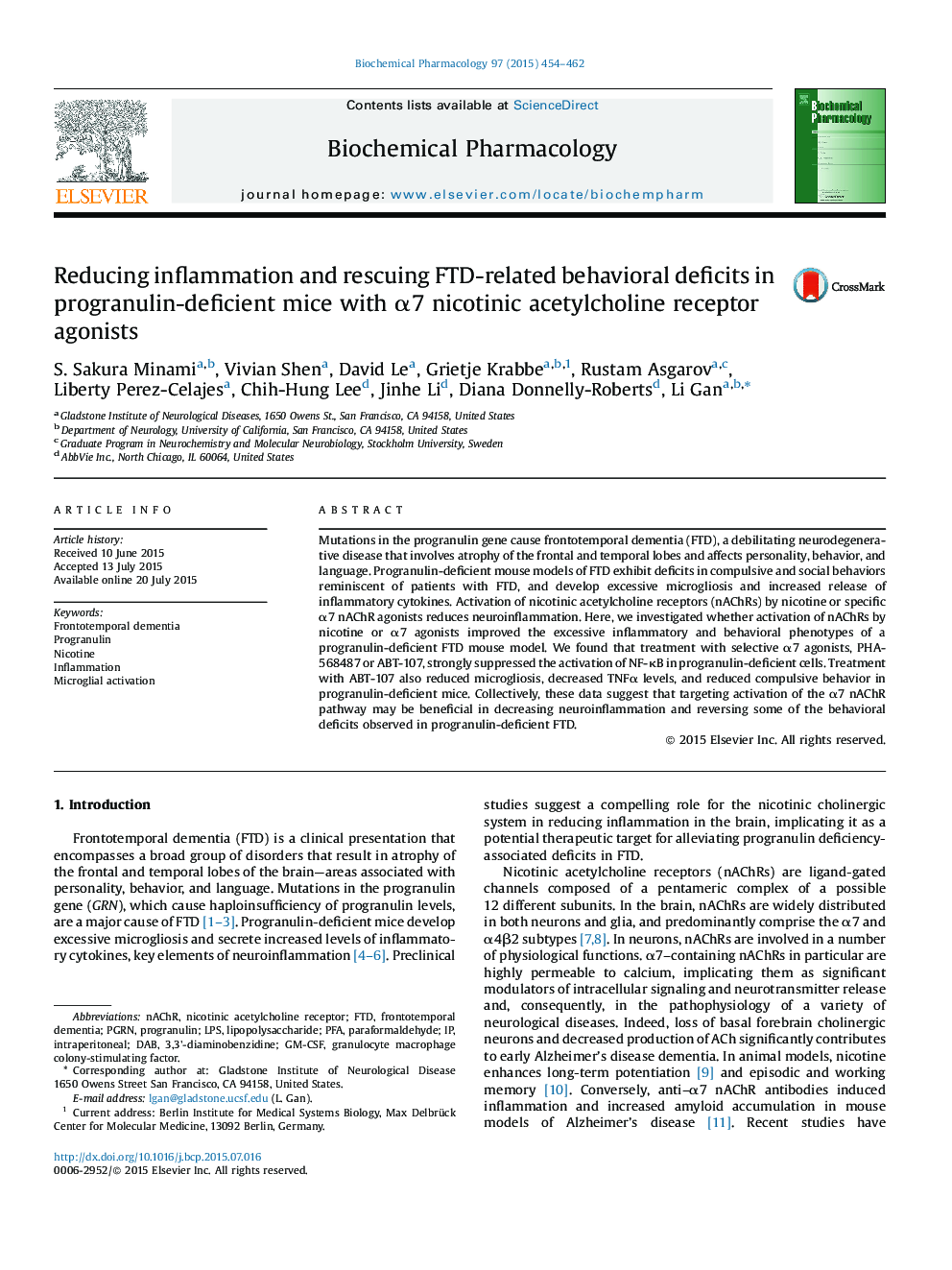| Article ID | Journal | Published Year | Pages | File Type |
|---|---|---|---|---|
| 2511998 | Biochemical Pharmacology | 2015 | 9 Pages |
Mutations in the progranulin gene cause frontotemporal dementia (FTD), a debilitating neurodegenerative disease that involves atrophy of the frontal and temporal lobes and affects personality, behavior, and language. Progranulin-deficient mouse models of FTD exhibit deficits in compulsive and social behaviors reminiscent of patients with FTD, and develop excessive microgliosis and increased release of inflammatory cytokines. Activation of nicotinic acetylcholine receptors (nAChRs) by nicotine or specific α7 nAChR agonists reduces neuroinflammation. Here, we investigated whether activation of nAChRs by nicotine or α7 agonists improved the excessive inflammatory and behavioral phenotypes of a progranulin-deficient FTD mouse model. We found that treatment with selective α7 agonists, PHA-568487 or ABT-107, strongly suppressed the activation of NF-κB in progranulin-deficient cells. Treatment with ABT-107 also reduced microgliosis, decreased TNFα levels, and reduced compulsive behavior in progranulin-deficient mice. Collectively, these data suggest that targeting activation of the α7 nAChR pathway may be beneficial in decreasing neuroinflammation and reversing some of the behavioral deficits observed in progranulin-deficient FTD.
Graphical abstractFigure optionsDownload full-size imageDownload as PowerPoint slide
